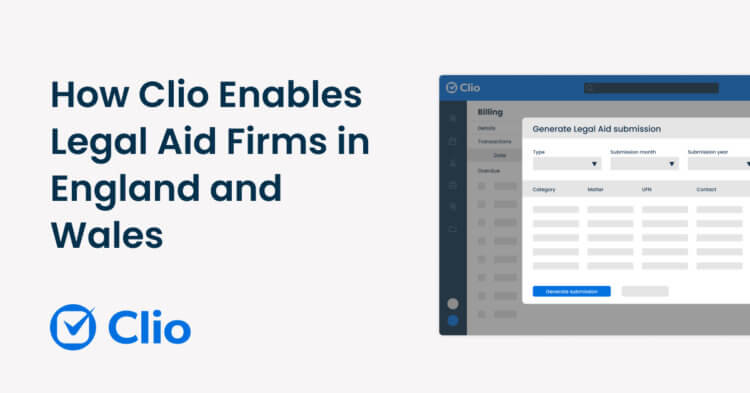Quality assurance can be of huge comfort and interest to potential legal clients. One measure law firms take may be to seek Lexcel accreditation. What is the pathway to achieving the Lexcel Standard and why some firms consider it? In the latest in our compliance, regulation, and best practice series, Paul McCluskey, founder of law firm finance and risk management specialists Gemstone Legal and Director of McCluskey Consulting, outlines the steps firms can take to achieve Lexcel accreditation.
The pathway to the Lexcel Standard
“The path to success is rarely a straight line” is a popular saying which applies to every aspect of our lives. In the context of running a successful law firm, business leaders will resonate with the ongoing financial and operational challenges faced daily by the business and will surely agree that adopting a consistent approach to practice management is the pathway to success.
With such a diverse range of legal practices, operating within a highly regulated environment, the pace of change can often seem unrelenting. Business growth invariably involves employing more people and therefore the need to adopt a single consistent framework will bring much-needed structure to every aspect of the operation.
Introduced by the Law Society in 1998, The Lexcel Standard can help to provide the required level of consistency and offer firms a robust framework across the following areas:
- Structure and strategy
- Financial management
- Risk management
- People management
- Information management
- Client care
- Case and file management
Lexcel offers relevant guidelines for in-house legal teams and private practices based in the UK and internationally.
What do I need to know?
The following information should help firms consider whether Lexcel will be a valued methodology for the practice.
- What value does Lexcel bring to the business?
- Is the price justifiable?
- Choose your accreditation body.
- The application process.
Let’s examine each of those in detail.
What value does Lexcel bring to the practice?
The first step with Lexcel accreditation is understanding what value this will bring to your business.
Whilst attainment can assist the practice to obtain a Legal Aid contract, the Lexcel Standard can provide a host of added value benefits.
Obtaining the Lexcel Standard offers a framework that everyone in the practice can support. Practice management will be a simpler task if all support staff and fee earners are working in a consistent way ensuring that best practice is shared throughout the firms.
For example, an improved approach to case and file management should drive improved levels of client care. This can lead to fewer complaints and happier people with more time to deals with workloads. Happier clients may invite more business referrals, which drives financial rewards, and help to meet the firm’s strategic objectives. A better run practice should ultimately encourage a future reduction in the firm’s professional indemnity insurance premium.
Is the price justifiable?
The tangible costs associated with Lexcel are outlined within the fee guide; however, paying the annual fees should not be the key consideration. The firm must also consider the time commitment involved with gaining and maintaining accreditation.
Law firm leaders will feel more confident that their policies and procedures, alongside their central record keeping is up to a high standard.
Although it can be difficult to put a price on peace of mind, many law firm leaders consider the Lexcel assessment a useful tool in which the firm’s ways of working are independently audited. The Lexcel assessors are encouraged to offer suggestions for best practice, which provides additional added value.
Many firms, large and small, place real value on the report issued by the assessor, which highlights what is going well, what can be improved, and offers further suggestions for best practice.
Choosing your assessment body
There are three assessment bodies that manage your Lexcel application and will be able to answer any questions you may have.
To help prospective applicants, Recognising Excellence (one of the three assessment bodies) will offer a free of charge Lexcel consultation, which should help you decide if Lexcel is appropriate for your practice.
The Application Process
The application process is a relatively straightforward exercise.
After discussing your application with an assessment body, you will be asked to complete a self-assessment checklist. This is ostensibly a gap analysis, which is designed to measure a firm’s existing controls versus the requirements of the Lexcel standard.
Should the firm feel they comply with the standard, they can apply to The Law Society. The Lexcel assessor will visit the firm at an agreed date and complete the initial assessment.
The firm then have up to 3 months to correct any of the non-compliances, or if the assessor feels the firm is not ready, they will have a discussion with the practice to outline what actions must be taken before the firm can be considered for accreditation.
The Conveyancing Quality Scheme (CQS) shares many of the guidelines utilised by Lexcel and therefore an appropriate addendum within the office manual, which address the CQS requirements, is often all that is required.
You may like these posts
Notable Points
It should be comforting to note that the Lexcel assessors are used to navigating around office manuals. In time many firms will eventually re-order their office manual to reflect the structure of Lexcel standard, but this is not a requirement.
Assessors will have experience of dealing with various practice management systems which means the file review process should be a painless exercise.
Summary
Obtaining the Lexcel Standard may not be for every practice, and firms considering applying for the standard may find it useful to discuss Lexcel in depth with an assessor. Legal Aid practices find Lexcel a valuable tool to obtain a Legal Aid contract. However firms of all sizes value the consistent approach to practice management which is enabled by Lexcel accreditation.
It is important to note that many firms may follow the structure outlined within the Lexcel standard but may decide not to apply for accreditation. The method provides the framework but without the independent assessment oversight.
Whatever you decide is appropriate for your firm, you may find it valuable to speak to a Lexcel accredited practice or an assessor who can offer an insight into the above process.
###
About Paul McCluskey
Paul McCluskey, Director of McCluskey Consulting, helps law firms to perfect their approach to banking, finance and risk management. Paul is an approved Lexcel consultant and assessor and works with Lexcel accredited practices (in-house and private practice) ranging from sole practitioners to larger firms with more than 1,000 staff. To contact Paul, email [email protected]
We published this blog post in April 2022. Last updated: .
Categorized in: Business, Legal Aid, Professional Development
PII costs a challenge?
Check out this free guide to solicitors' professional indemnity insurance for tips and techniques to getting the best deal.
Download for free






